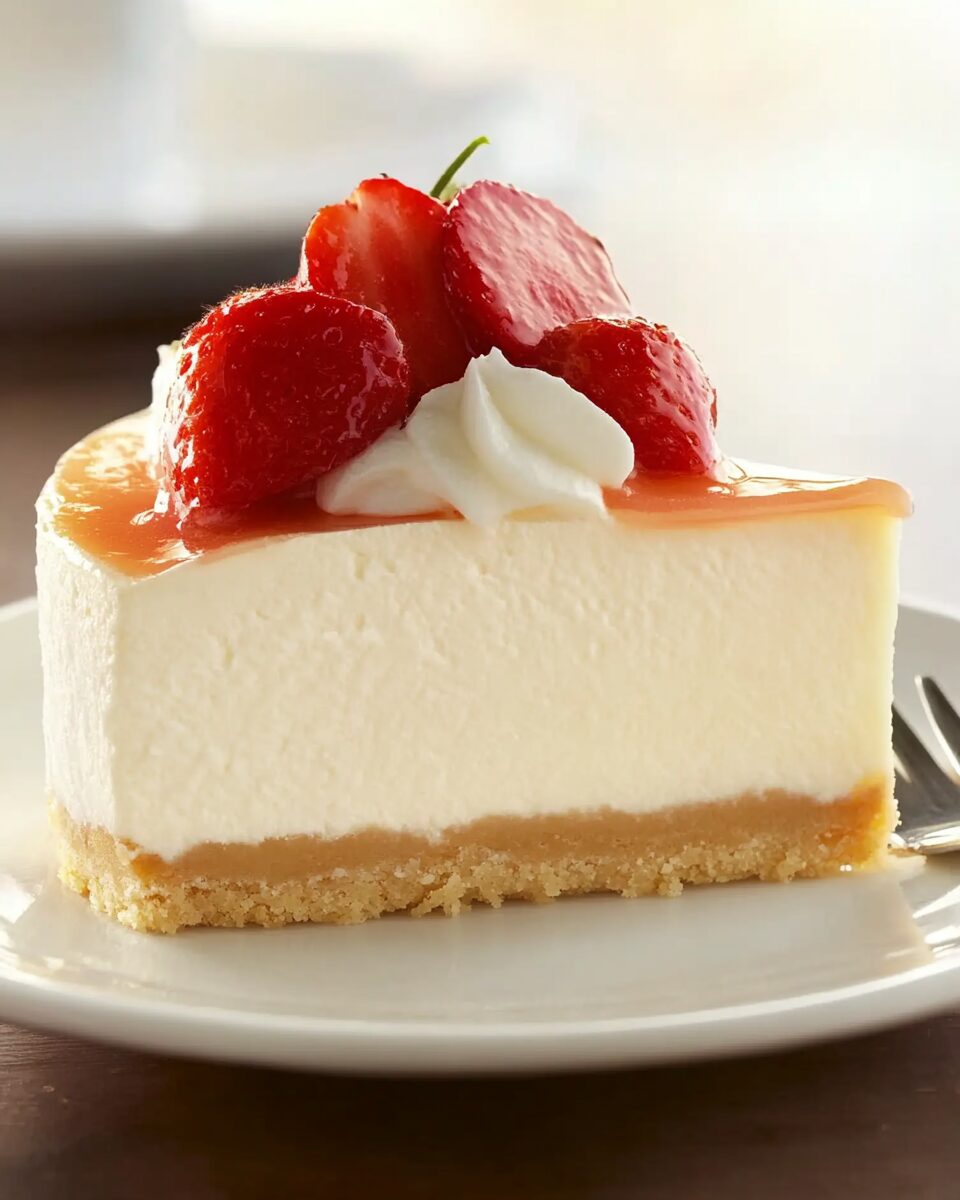Origins of Cheesecake and the Low-Fat Variation
The history of cheesecake dates back to ancient Greece, where it was served to athletes during the first Olympic Games as a source of energy. Over the centuries, cheesecake recipes evolved in different regions, each culture adding its own ingredients and variations. While the Greeks and Romans initially enjoyed a simple version made with cheese, honey, and eggs, modern cheesecakes incorporate a variety of cream cheeses, cookies, and fruits.
The introduction of low-fat cheesecake came as part of a broader movement toward healthier eating. As people became more health-conscious, they sought ways to make indulgent dishes more suitable for their diet plans. By replacing high-fat ingredients such as full-fat cream cheese with lower-fat alternatives like reduced-fat cream cheese and Greek yogurt, the low-fat cheesecake was born. It offers the same creamy texture but without compromising on taste, making it a great choice for anyone looking to enjoy a dessert while being mindful of their health.
Health Benefits of Low-Fat Cheesecake
Low-fat cheesecake is a fantastic option for those watching their calorie intake or looking to make healthier dessert choices. One of the primary health benefits of this dessert is its lower fat content compared to traditional cheesecake. By using reduced-fat cream cheese and Greek yogurt, you significantly cut down on the amount of saturated fat that typically comes from full-fat cream cheese. This can help reduce the risk of heart disease and contribute to better cholesterol levels.
Another benefit of low-fat cheesecake is the inclusion of Greek yogurt, which not only adds a creamy texture but also boosts the recipe’s nutritional value. Greek yogurt is packed with protein, calcium, and probiotics, which can aid in digestion and support bone health. The protein in Greek yogurt also helps you feel fuller longer, making it a satisfying dessert that won’t leave you reaching for more sweets later.
Additionally, many low-fat cheesecake recipes use alternative sweeteners, which can lower the sugar content without sacrificing sweetness. This makes it a great option for those trying to reduce their sugar intake, whether for weight management, diabetes control, or general health reasons. By making these simple substitutions, low-fat cheesecake becomes a healthier dessert option that still satisfies your sweet tooth.
How to Make a Low-Fat Cheesecake
Making a low-fat cheesecake is easier than you might think, and you don’t have to sacrifice flavor or texture in the process. The key is to use lower-fat ingredients while still achieving the rich, creamy consistency that is characteristic of a good cheesecake. Instead of heavy cream or full-fat cream cheese, opt for reduced-fat cream cheese, non-fat Greek yogurt, or light sour cream.
For the crust, you can keep things simple by using graham crackers, or you can experiment with healthier options such as crushed nuts or oats. The filling is the star of the show, and it’s essential to mix the ingredients thoroughly to create a smooth, lump-free batter. Remember that baking at a lower temperature for a longer period of time helps prevent cracks in the surface, which can be a common issue with cheesecakes.
Another tip is to allow the cheesecake to cool completely before refrigerating it. Giving it time to set in the fridge will help the flavors develop and give the cheesecake a firmer texture. If you want to get creative, consider topping your cheesecake with fresh fruit, fruit compotes, or a drizzle of honey for added flavor without the extra calories.
Variations on Low-Fat Cheesecake
One of the best things about low-fat cheesecake is how customizable it can be. You can easily adjust the flavors and toppings to suit your personal preferences. For a tropical twist, consider adding fresh pineapple or mango to the filling or as a topping. If you love chocolate, you can create a low-fat chocolate cheesecake by incorporating cocoa powder or melted dark chocolate into the filling. Another option is to add a bit of lemon zest to the batter for a refreshing citrus flavor.
For those who enjoy a more decadent dessert, you can layer the cheesecake with a thin layer of fruit preserves or chocolate ganache before baking. This adds an extra dimension of flavor while keeping the overall calorie count relatively low. Don’t forget that the crust is also an area where you can get creative. Swap out traditional graham crackers for a healthier option like almond flour or oats for a gluten-free version.
Tips for Making a Perfect Low-Fat Cheesecake
Creating a perfect low-fat cheesecake takes a little practice, but with these tips, you’ll be able to impress your guests and satisfy your own cravings for a delicious, healthier dessert:
-
Use Room Temperature Ingredients: Make sure your cream cheese and Greek yogurt are at room temperature before mixing. Cold ingredients can lead to a lumpy batter, which can affect the final texture of the cheesecake.
-
Don’t Overmix the Batter: When preparing the filling, avoid overmixing, as this can cause air bubbles to form, which could lead to cracks during baking. Mix the ingredients just until they are combined.
-
Baking Time is Key: Since low-fat cheesecakes tend to bake at a slightly lower temperature, be patient and allow it to bake slowly. Avoid opening the oven door during baking, as this can cause the cheesecake to collapse.
-
Chill the Cheesecake: Once the cheesecake is baked, let it cool completely before placing it in the refrigerator. Allow it to chill for at least four hours or overnight for the best results. This step is essential for achieving the desired texture.
-
Add Fruit Toppings: To keep the dessert light and refreshing, top your cheesecake with fresh berries or a homemade fruit compote. This adds a burst of color and flavor without adding many calories.
Conclusion: Why You’ll Love Low-Fat Cheesecake
Low-fat cheesecake is an excellent dessert choice for anyone looking to enjoy a healthier version of a classic treat. With its creamy texture, satisfying flavor, and customizable options, it’s a dessert that can be enjoyed by everyone, no matter their dietary preferences. Whether you’re watching your weight, reducing your sugar intake, or simply looking for a lighter dessert, low-fat cheesecake is the answer.
It’s easy to make, versatile, and perfect for any occasion, from casual family dinners to holiday celebrations. By using healthier ingredients and thoughtful substitutions, you can enjoy a slice of cheesecake without the guilt. So why not give this low-fat cheesecake a try? It’s sure to become a favorite in your household and a go-to dessert for many occasions.






